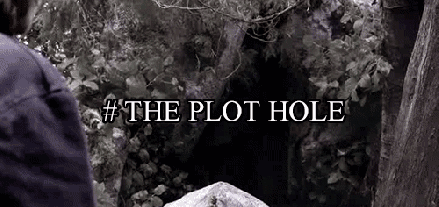YA as a genre is more popular than ever. Not only teens, but increasing numbers of adults are helping to remove the stigma from the genre and showing the literary world that the stories of young adults are meaningful, revealing, and, yes, quality literature. But at times like these, we can't help but be reminded of how far this newborn genre has to go.
We need a real conversation about the profound lack Blue Öyster Cult lyrics in young adult fiction.
At first it might not seem that obvious, but look at all the young adult books most people are familiar with. Twilight. The Hunger Games. Harry Potter. Even classic greats like Huckleberry Finn and The Catcher in the Rye. What unites all of them, and actually most of the YA market?
All these books contain zero lyrics from the timeless 70s rock band Blue Öyster Cult.
The great essayist Samuel Johnson once said on fiction: "the greatest excellency of art [is] to imitate nature; but it is necessary to distinguish those parts of nature which are most proper to imitation." What, we ask, could be more worthy of imitation than the multi-platinum powerhouse responsible for such masterpieces as "Astronomy," "Godzilla," and "Black Blade"? Is a YA book really a reflection of the real world if it excludes all mention of Blue Öyster Cult?
Without Blue Öyster Cult, can any book deserve the praise of being "absolutely righteous"?
Let's do a thought experiment.
Look at the covers of the following YA books:
Now turn your volume to its highest setting and play the video below. And ask yourself: is excluding this degree of facemelting from your books fair?
It's on you, YA. We're burning for change.
That's right; we went there.
Are you finishing your novel, but feeling that the resolution needs just an extra "oomph" to leave a reader feeling that your work has meaning? Are you worried that your violent saga of rebellion against a despotic future government has lots of action but falls short in substance?
There's one thingamajig that usually works.
We recommend you look up Jesus.
Don't get us wrong - you don't need to include vestiges of Christianity in your story that is set in what used to be the fervently Christian United States. Nor do you need to insert religious elements into the non-denominational marriage of your heroine and her pick of the love triangle, both of whom keep their religious lives out of the story. Nor does your protagonist need to have any similar tendencies to Jesus. You just need to add in a few details that will have a reader going, Woah! JESUS! But with WEAPONS!
LEVEL 1
Sacrificing life for friends
"No. I need to do this myself. This time, it's just them and me."
There is no reason for your characters' friends to sit out the final battle. Make it happen anyway.
LEVEL 2
Revealed as Chosen One
In the third book. Maybe prophecy? Sort of like, "OH! She's Jesus."
LEVEL 3
Death delivers an entire nation
LEVEL 4
Return to life
An authorial move known in publishing houses as "Full Yeshua."
LEVEL 5
Being a class-A snarker
Ex: "Are you the King of the Jews?"
"You say so."
This should be the easiest to shoehorn in. Just don't overdo it, for Chrissakes.
1. Killer inciting incident
What could be better than love at first sight? For agents, it's that magical, first-sight experience or nothing. Think: if your reader was browsing at a bookstore, would they drop yours after the first few pages?
Ideas to kick-start your story: picking the most exciting moment in your plot outline and starting there, an incident that will allow you to display your narrator's unique voice, leading the Korean People's Army across the 38th parallel.
2. Nonstop Action
By action, we don't necessarily mean physical. There are many types of action that make a story compelling: verbal, sensory, new revelations for the characters. "Action" could be anything, from moving to a new setting, introducing a new problem, or the involvement of UN coalition forces and the Chinese.
Tip: make an outline that structures your story so that something important happens in every chapter.
3. Consistency
Nothing annoys a careful reader (or a professional reader, like an agent or editor) like imperfections and plot holes. Make sure that you have friends and beta readers check your story for inner contradictions.
If you have a theme, make sure you hint at it repeatedly and never drop the thread. For example, if you want readers to think that your main character was born on a sacred mountain to the sign of a blessed star, learned to talk at three weeks old, has written 1500 of the world's best books, along with 6 incomparable operas, can see into their minds when they have unpatriotic thoughts, does not defecate, and is immortal, drive the message home with constant daily reminders and total control of the press.



















